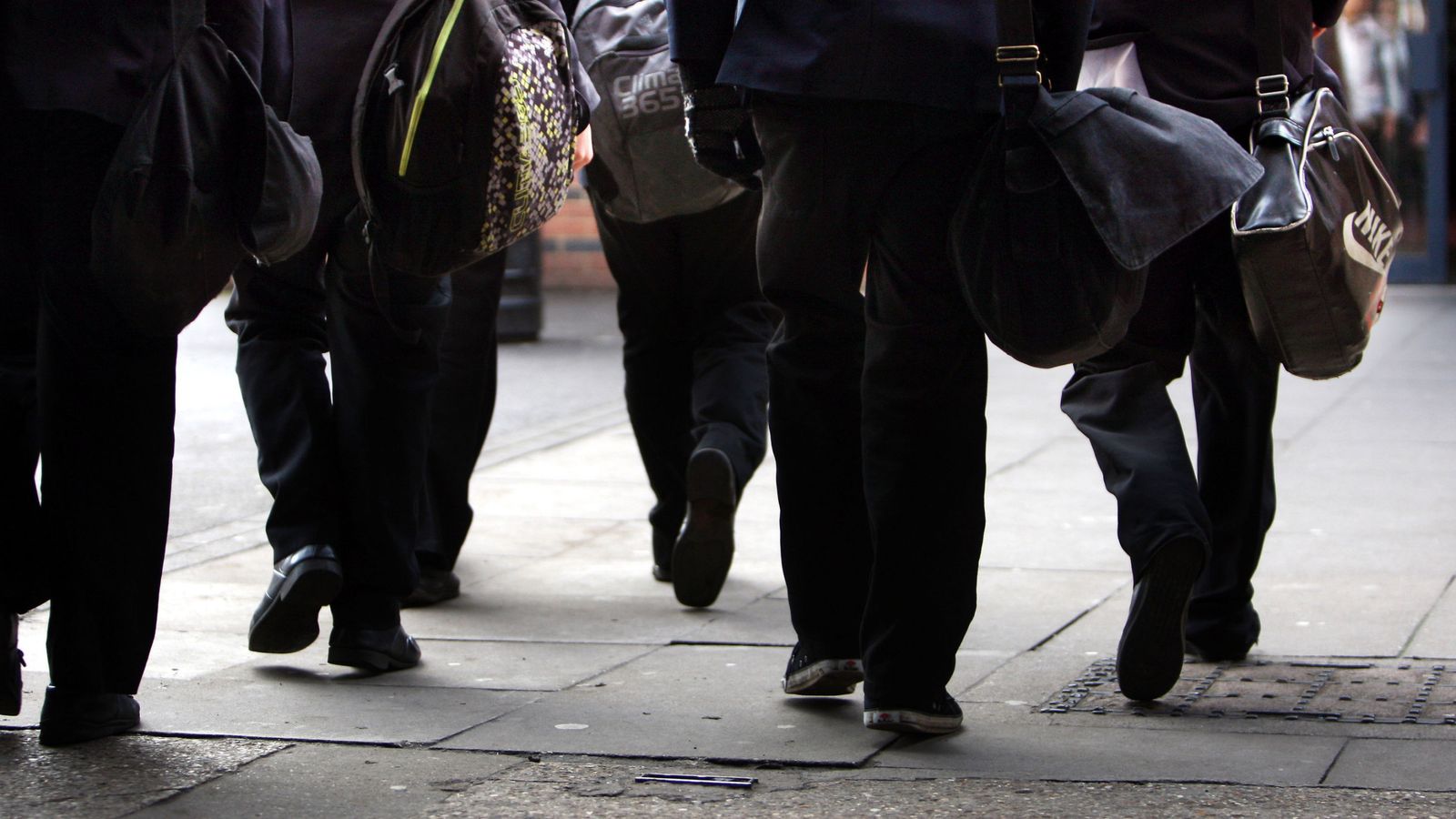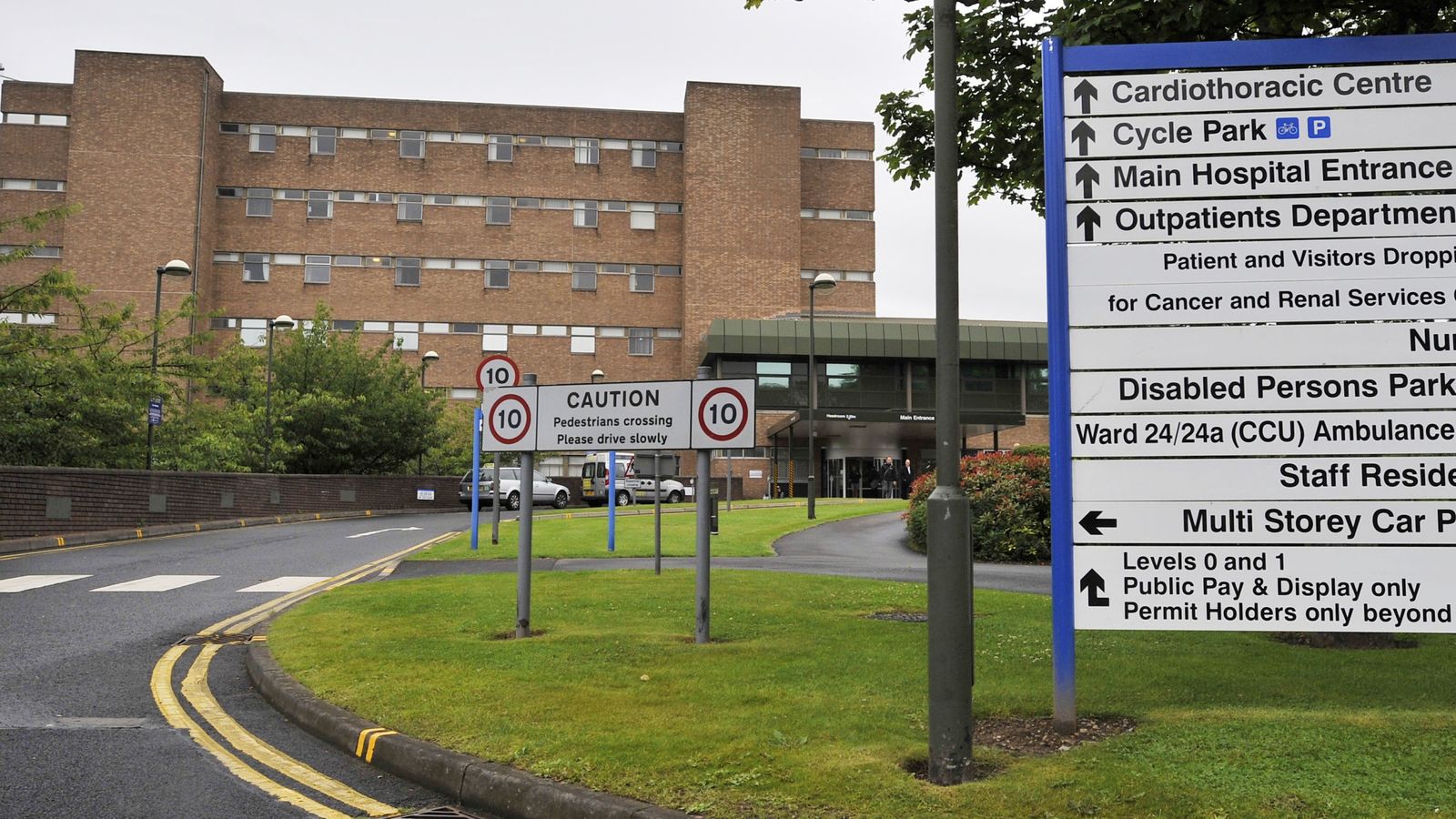Labour will add VAT to private school fees within its first year of government if it wins the next general election.
The party said it does not plan to “phase in” the change over several academic years if it enters Downing Street.
Instead, it is understood it will end the controversial tax breaks enjoyed by independent schools as soon as it possibly can.
Read more: Labour frontbencher dismisses prospect of Lib Dem post-election – politics latest
According to the i paper, which first reported on the story, this means private school fees could be hit with a 20% increase as soon as the first academic year after the election – which is due to take place before the end of next year.
Labour estimates this could raise £1.7bn to invest in state schools.
Party chair Anneliese Dodds told Sky News: “At the moment, 90% of kids go to schools that are not private. We need to be gathering the money from somewhere in order to (raise standards). We’ve been really upfront about this.”
Politics latest: Sir Ed Davey prepares for conference speech – as Labour frontbencher dismisses post-election deal with Lib Dems
Lib Dem conference: Sir Ed Davey to underline health pledges as he promises to ‘fix our economy with care’
Being gay or a woman isn’t reason enough to claim asylum, says Suella Braverman
She added: “We need to see that change and what Labour will never do is have an unfunded policy. We had that with Liz Truss. We saw the impact on our economy.”
Asked if it was fair to parents who “scrimp and save” to send their children to private school, Ms Dodds insisted it would not lead to a drop in attendance.
She said: “We’ve actually seen over the last 20 years, the fees that private schools charge going up pretty much year on year, often above inflation.
Please use Chrome browser for a more accessible video player
“There’s not been any drop-off in the number of students and pupils attending those schools. In fact, the number of pupils at those schools has gone up over time.”
Labour leader Sir Keir Starmer has previously pledged that a government led by him would strip private schools of their charitable status, which makes them eligible for tax relief and business rate discounts.
Last year he used the policy to launch a personal attack on Prime Minister Rishi Sunak, who attended the £49,000-a -year Winchester College.
Many Conservatives are opposed to the plan, arguing it will force more parents to send their children to state schools, piling extra pressure on the system.
Teachers within the independent sector have also warned it is likely to have a disproportionate impact on the smaller and medium sized private schools compared to the most prestigious ones like Winchester and Eton.
Julie Robinson, the chief executive of the Independent Schools Council, told the i: “We would urge Labour to take note of the real concerns that many across education have raised, particularly the effect their policy would have on children in smaller schools, in faith schools, children on bursaries, and pupils with special educational needs.”
Warnings of a mass exodus were dismissed in a report by the independent Institute for Fiscal Studies (IFS) in July, which said the policy would have “a relatively limited effect” on pupil numbers.
Read more:
Rishi Sunak ‘considering British baccalaureate as part of education overhaul’
Sir Keir Starmer hopes to bring state schools up to private standards in first term
The report also said the gap between private school fees and state school spending per pupil has more than doubled since 2010, when it was about 40% or £3,500.
It said in 2022/2023, the average private school fees across the UK were £15,200. The report said this is £7,200 or nearly 90% higher than state school spending per pupil.
A Labour Party spokesperson said it makes “no apology for relentless focus on how to drive high and rising standards in our state schools”.
“Because we are the party of fair taxes, we will end the unjustifiable tax break afforded to private schools and fund recruitment of over 6,500 more teachers and put access to mental health counselling in every school.”












